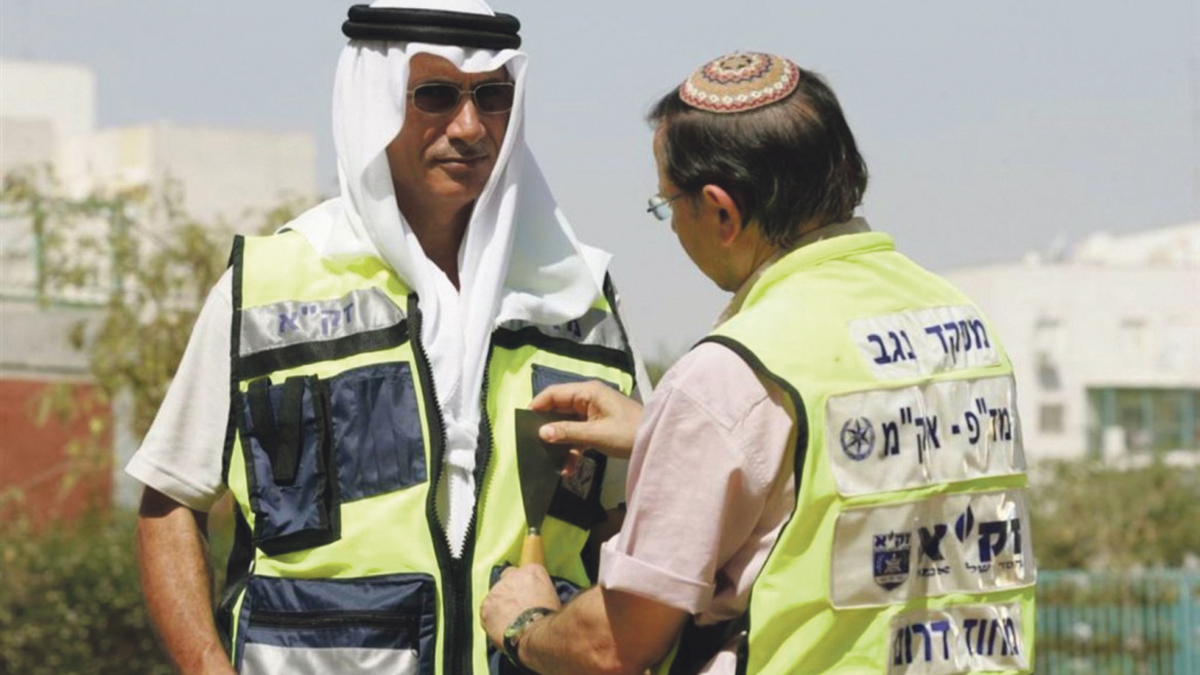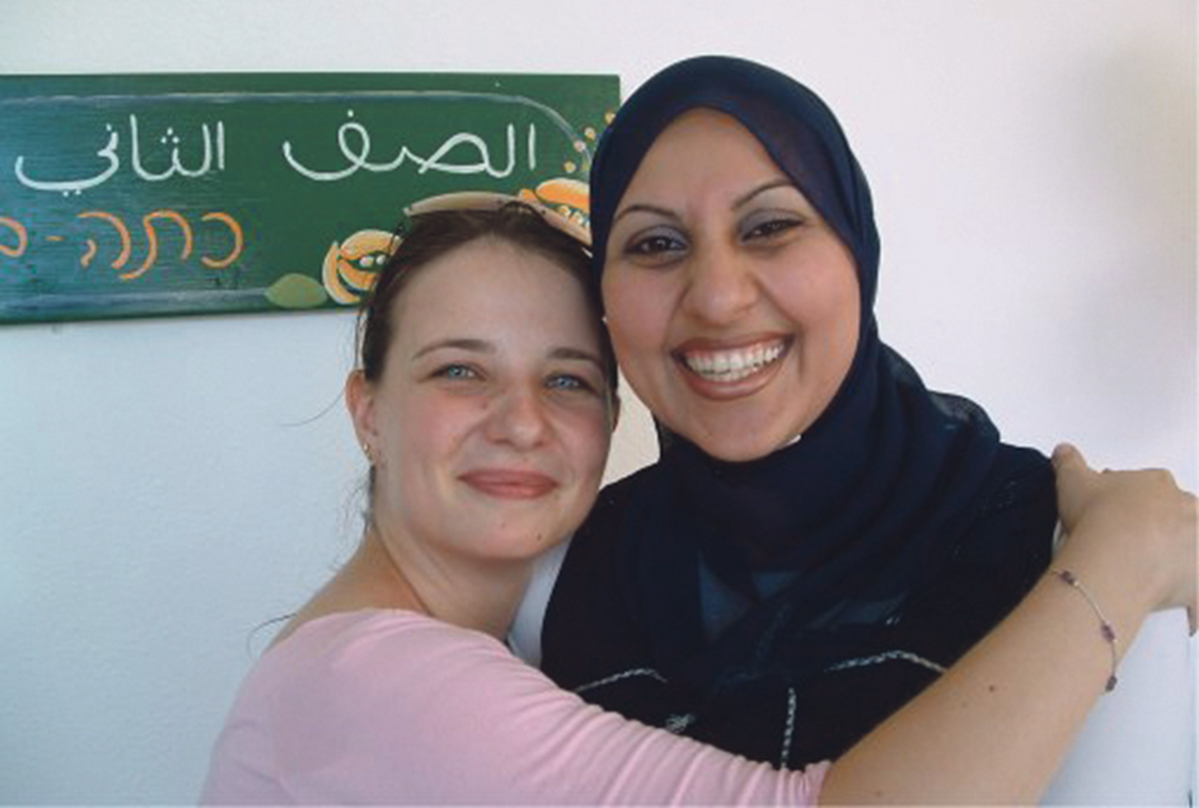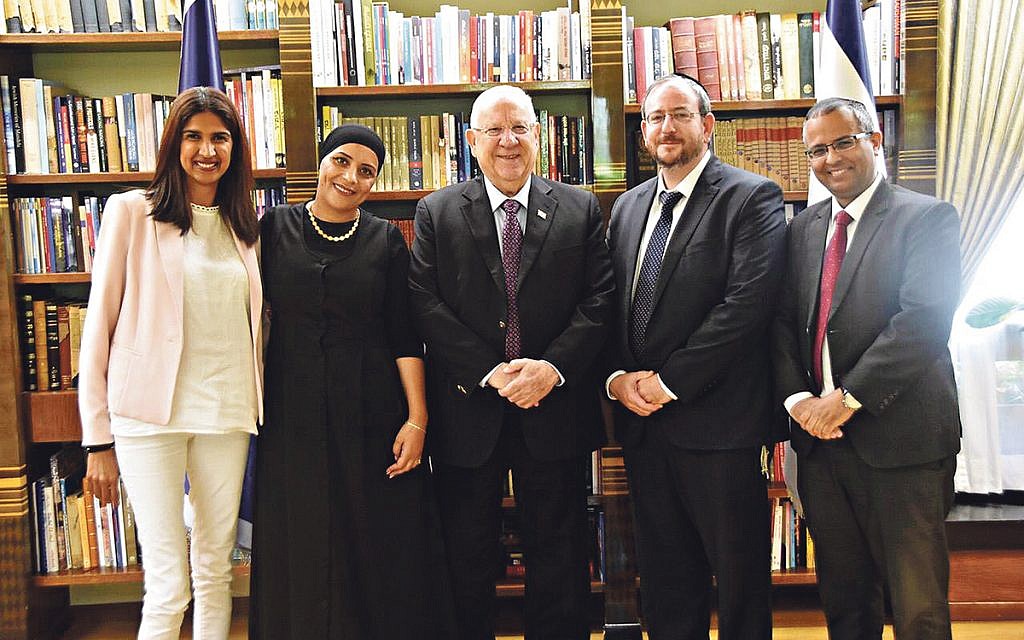Walking in the shoes of Israel’s four tribes
A new initiative looks to build bridges between secular, religious, Charedi and Arab communities by getting them to 'swap places' for the day
Israeli President Reuven Rivlin likes to talk about the four tribes of the country: secular Jews, religious-nationalist Jews, strictly Orthodox Jews, and Arabs.
By population, they’re about a quarter each, and although they share the same land, they’re worlds apart. Rivlin argues they need to mix and mingle if Israel is to succeed, but they aren’t doing it, and left to their own devices, they won’t.
Those aiming to help solve some of Israel’s long-term strategic difficulties have got involved. One such group is the Edmond de Rothschild Partnerships. Its ‘Day in the Life’ (Yom Bimkom) initiative took place last month, and involved “swapping places” with someone from
a different ‘tribe’ for the day.
Get The Jewish News Daily Edition by email and never miss our top stories Free Sign Up
“We had no difficulty convincing people to participate,” said Anat Nehemia Lavee, chief executive of the Partnerships. “That included businesspeople in traditional villages and senior government staffers.”
What prompted the idea? “We live in a very diverse but often separated society, and people really want to get to know members of the other groups personally and emotionally. Literally hundreds of people contacted us to take part.”
Among those swapping places was the secular Jewish chief executive of a giant beverage company who switched with the Arab chief executive of a very large food company. In another pairing, the religious Jewish education director of the Modi’in Municipality switched with the Arab school principal from the mixed city of Lod.

Likewise Harel Tubi, head of President’s House (Rivlin’s official residence), traded places with the head of a strictly-Orthodox women’s college. “My family has an ultra-Orthodox wing,” Tubi says. “But there is nothing like personal contact at a place of education to get to know people better and for me to see how to deal with the challenges facing the person I am changing with.”
Lavee – “a traditional Jewish woman” –switched with the head of the Druze Center in Israel. “We were glad we managed to get people to participate from communities and levels who don’t usually take part in national projects, such as Arabs and the strictly-Orthodox,” she says.
Among the strictly Orthodox taking part was Yehuda Shlezinger, a religious food journalist who switched with a secular food journalist; Yehuda Meshi Zahav, the head of first aid organisation ZAKA, who switched with a secular student leader; and Rabbi Zvi Schreiber, head of the Lev Academic Center, who swapped with the director of President’s House, a secular Jew.
“I wanted to experience the worldview of the other side,” said Schreiber. “What motivates him? What makes him worried or fearful? How does he see me?”
Sliman Alamour, from the Arab community, works with young people in Bedouin villages. While his work has introduced him to secular Jews, he says: “I’m less familiar with the religious and strictly-Orthodox tribes. I want to know them better.”
Alamour, who now works at the Negev Institute for Strategies for Peace and Economic Development, swapped with Shira Ohana of Kav Hazinuk, an organisation training young religious Jews in the Negev, and said they faced shared challenges. “The difficulties that arise are similar,” he says. “We can learn from each other.”

Asked whether Rivlin’s theory of the four tribes held any wisdom, Ohana agrees. “Our life structures define who we meet and who we don’t. The moment our educational institutions separate between religious, secular, Arab and strictly-Orthodox, there’s no place to meet.”
Alamour said that while meeting those from other tribes was a remedy to counter these tribal barriers, it was becoming more difficult.
“The barriers are being erected and keep getting bigger,” he said. “Politicians create them for their own cynical and aggressive needs. They create division, which deepens the schisms.”
Schreiber says there were “always extremists in each of the tribes, who try to maintain obstacles through engendering fear of other tribes,” adding: “The influence of politicians is usually destructive. Politics by its nature polarises.”
Alamour agrees that coming together works. “Israel will be stronger if these barriers are removed,” he says. “We must get to know one another’s tribes, their characteristics and needs. That doesn’t mean we all become alike, but it does lead to cooperation and creates a shared and healthy space, which brings prosperity and helps everyone.”
Schreiber, likewise, recognises the limits, saying: “Israel will be stronger when there is acceptance and love between the tribes.”
Anat Nehemia Lavee, Faten Alzinati, President Reuven Rivlin, Rabbi Zvi Shreiber and Harel Tubi

Thank you for helping to make Jewish News the leading source of news and opinion for the UK Jewish community. Today we're asking for your invaluable help to continue putting our community first in everything we do.
For as little as £5 a month you can help sustain the vital work we do in celebrating and standing up for Jewish life in Britain.
Jewish News holds our community together and keeps us connected. Like a synagogue, it’s where people turn to feel part of something bigger. It also proudly shows the rest of Britain the vibrancy and rich culture of modern Jewish life.
You can make a quick and easy one-off or monthly contribution of £5, £10, £20 or any other sum you’re comfortable with.
100% of your donation will help us continue celebrating our community, in all its dynamic diversity...
Engaging
Being a community platform means so much more than producing a newspaper and website. One of our proudest roles is media partnering with our invaluable charities to amplify the outstanding work they do to help us all.
Celebrating
There’s no shortage of oys in the world but Jewish News takes every opportunity to celebrate the joys too, through projects like Night of Heroes, 40 Under 40 and other compelling countdowns that make the community kvell with pride.
Pioneering
In the first collaboration between media outlets from different faiths, Jewish News worked with British Muslim TV and Church Times to produce a list of young activists leading the way on interfaith understanding.
Campaigning
Royal Mail issued a stamp honouring Holocaust hero Sir Nicholas Winton after a Jewish News campaign attracted more than 100,000 backers. Jewish Newsalso produces special editions of the paper highlighting pressing issues including mental health and Holocaust remembrance.
Easy access
In an age when news is readily accessible, Jewish News provides high-quality content free online and offline, removing any financial barriers to connecting people.
Voice of our community to wider society
The Jewish News team regularly appears on TV, radio and on the pages of the national press to comment on stories about the Jewish community. Easy access to the paper on the streets of London also means Jewish News provides an invaluable window into the community for the country at large.
We hope you agree all this is worth preserving.
-
By Brigit Grant
-
By Laurent Vaughan - Senior Associate (Bishop & Sewell Solicitors)
-
By Laurent Vaughan - Senior Associate (Bishop & Sewell Solicitors)
-
By Laurent Vaughan - Senior Associate (Bishop & Sewell Solicitors)
-
By Laurent Vaughan - Senior Associate (Bishop & Sewell Solicitors)






















